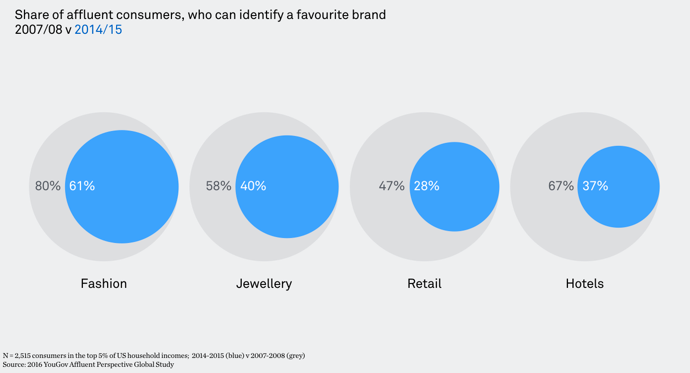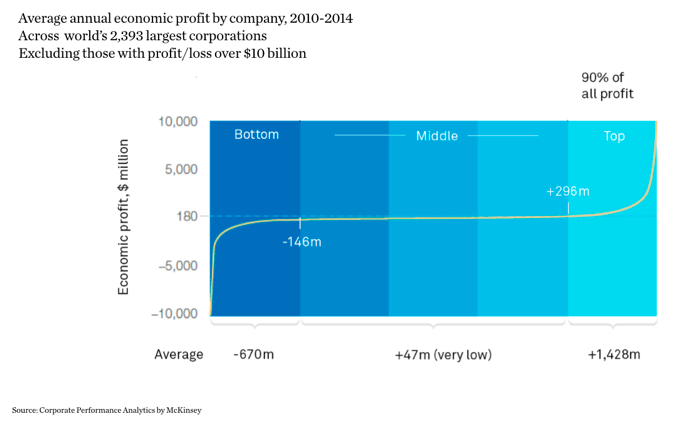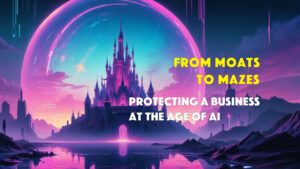Consumer expectations are changing, branding is waning, machine-to-machine convenience retail is on the rise.
The past decade brought about a dramatic change in consumer expectations. The pace of retail, the efficiency of operations, the pressures on price, choice and speed of delivery have increased exponentially.
Consumer-focused technology has redefined the industry. With two-digit annual membership growth for years, Amazon has become either a dominant retail power or – at least – a strong challenger, wherever it operates. The company successfully leverages access to over 150m Prime subscribers in the US alone, to negotiate exclusive discounts, eroding brand power and squeezing manufacturer margins.
The rise of voice further pushes convenience retail towards automation, where recommendations – and, occasionally, decisions – are outsourced to digital assistants. By 2022, 6% of all US online spend (ca. $40bn) will flow via voice assistants, without consumers ever laying eyes on the product. The current leader of Conversational Commerce is Amazon, with around 70% stake of the global market.
Continuous commoditisation of branded products has naturally led to a sharp decline in brand loyalty. Even amongst affluent consumers, less influenced by price, the numbers of those able to identify favourite brands fell sharply.

Digital economy introduces a few new rules: you’re either paranoid, smart and bold or hopelessly unsuccessful.
The concept of competition is becoming increasingly fluid – companies need to frequently run 360 degree scans of their target audience’s environment and react to new developments early and decisively. The traditional industry borders are pretty much gone – today, an organic vegetable stall competes with Amazon, the New York Times competes with Apple and Disney competes with Deliveroo.
Waiting out the period of high uncertainty to learn from pioneers’ mistakes – is no longer a viable strategy as being first (or a very fast follower) comes with a huge learning advantage. The pace of digital development allows first movers to prototype, test, harvest consumer data, refine and issue product revision 3 or 4 before a cautious follower launches his initial proposition. According to McKinsey, 3-year revenue growth of bold movers is almost twice that of their average competitors.
Looking at the world’s 2,393 largest corporations (excluding those making/ losing over $10bn/year) – the top 20% of companies capture 90% of economic profit. The bottom 20% suffer heavy losses and the 60% in between barely make any money. The moral? As the world economy increasingly adopts a winner-takes-all attitude, making bold, well-calculated, bets is the only way to succeed.

Businesses – large and small – wrack their brains on how to inspire love and loyalty in times of mistrust and convenience.
It’s pretty obvious that in order to survive the second industrial revolution, businesses need to:
- Stay connected to existing audience and watch out for micro-trends
- Inspire loyalty – through unique culture, better customer service etc.
- Find a way to move from one-off transactions to ongoing relationships with their customers
- Expand existing services to address larger consumer challenges
- Look out for new ways to provide value – consider new audiences, products, services, geographies, industries etc.
Companies form digital ecosystems by seamlessly merging several services to offer solutions to bigger problems.
For example, an ecosystem built around a banking app could streamline a complex cross-industry journey like facilitating a customer’s move to another city:
- Find a new property
- Provide financial backing and legal services (probably the only service the app currently provides)
- Sell or rent out the existing one
- Organise the move itself
- Get the customer’s children into reputable local schools
- Find reliable local cleaners, dog walkers, personal trainers etc.
- Arrange memberships in local clubs: gym, social (e.g. Soho House).
- Provide infrastructure for management of all services organised through the app, continuously adding functions to build ever-stronger bond with consumers.

It’s happening: find partners, get on board.
7 of the world’s 12 largest companies by market capitalisation (Alibaba, Alphabet (Google), Amazon, Apple, Facebook, Microsoft, and Tencent) are already ecosystem players. By 2025 digital ecosystems are expected to account for more than 30% of global corporate revenues[6].
However, ecosystems are not something reserved for international giants – smaller businesses can partner up to provide a wider offering. A babysitting service could team up with a restaurant-booking app and a cinema chain to offer seamless evening-out packages to couples with young children.
The benefits of such a partnership would be:
- More customers for all participants – as “going out” becomes a viable option for more couples more often.
- More time spent by consumers using the app translates into richer insights that can help all 3 businesses.
- Longer direct contact with consumers (provided the right rapport is developed) allows early identification of interest in additional services.
In short: the second industrial revolution is afoot and large companies have a tremendous advantage to expand their existing services in nigh unlimited directions to lure consumers with seamless convenience.
A few years from now, the number of apps an average person uses will probably fall dramatically – as apps’ coverage expands. There will be one for finance (including bills, taxes and legal), one for wellness and entertainment, one for retail etc.
There will still be space for independent vendors, who do their job exceptionally well. But digital partnerships that seamlessly merge great providers to solve a wide range of complex challenges are clearly the future.
It won’t take long for Amazon to start renting off-the-shelf infrastructure for artisans to plug into to form ecosystems. And when that happens – you better be ready – the early bird gets the worm and lives to tell the tale.





